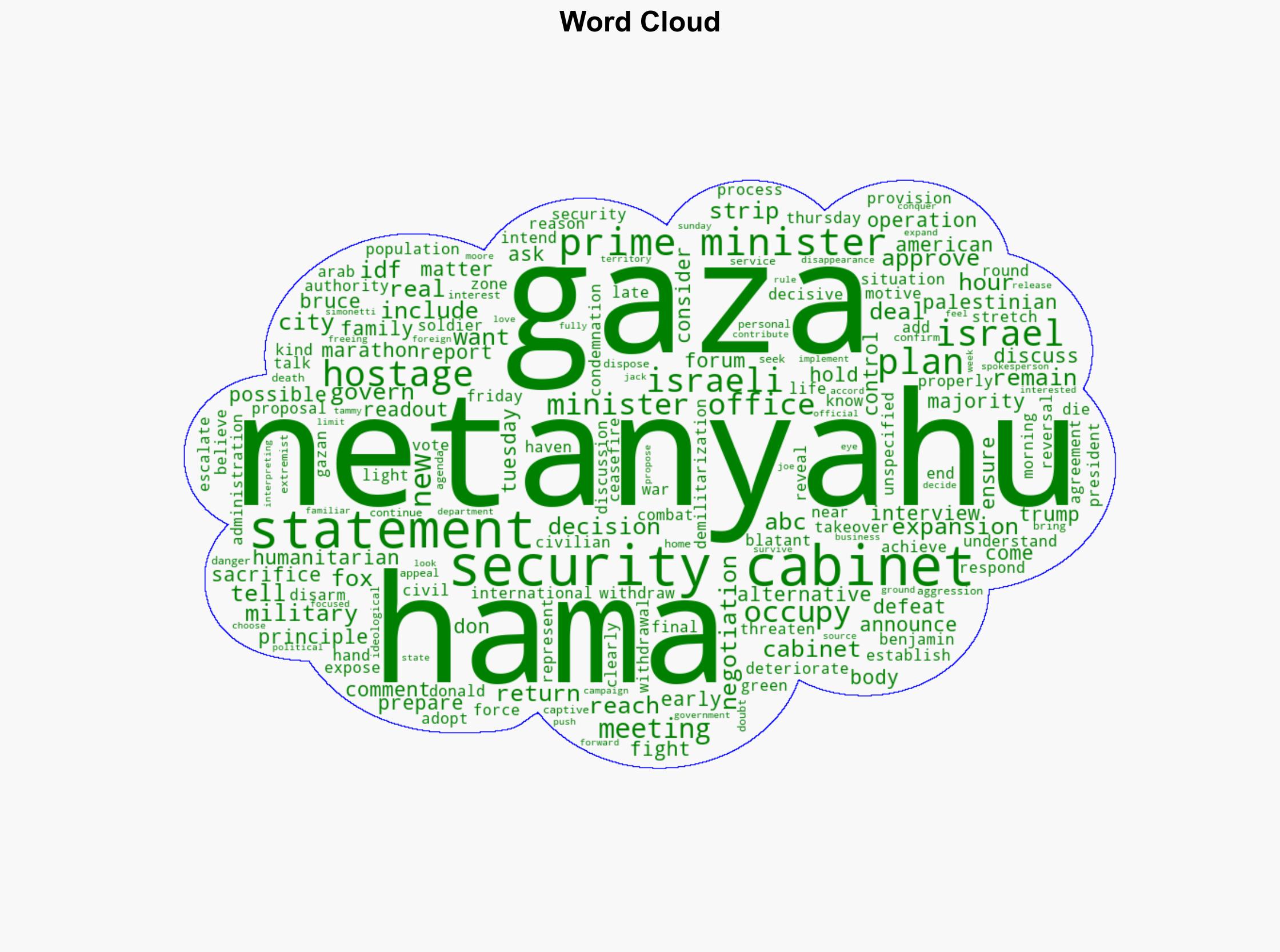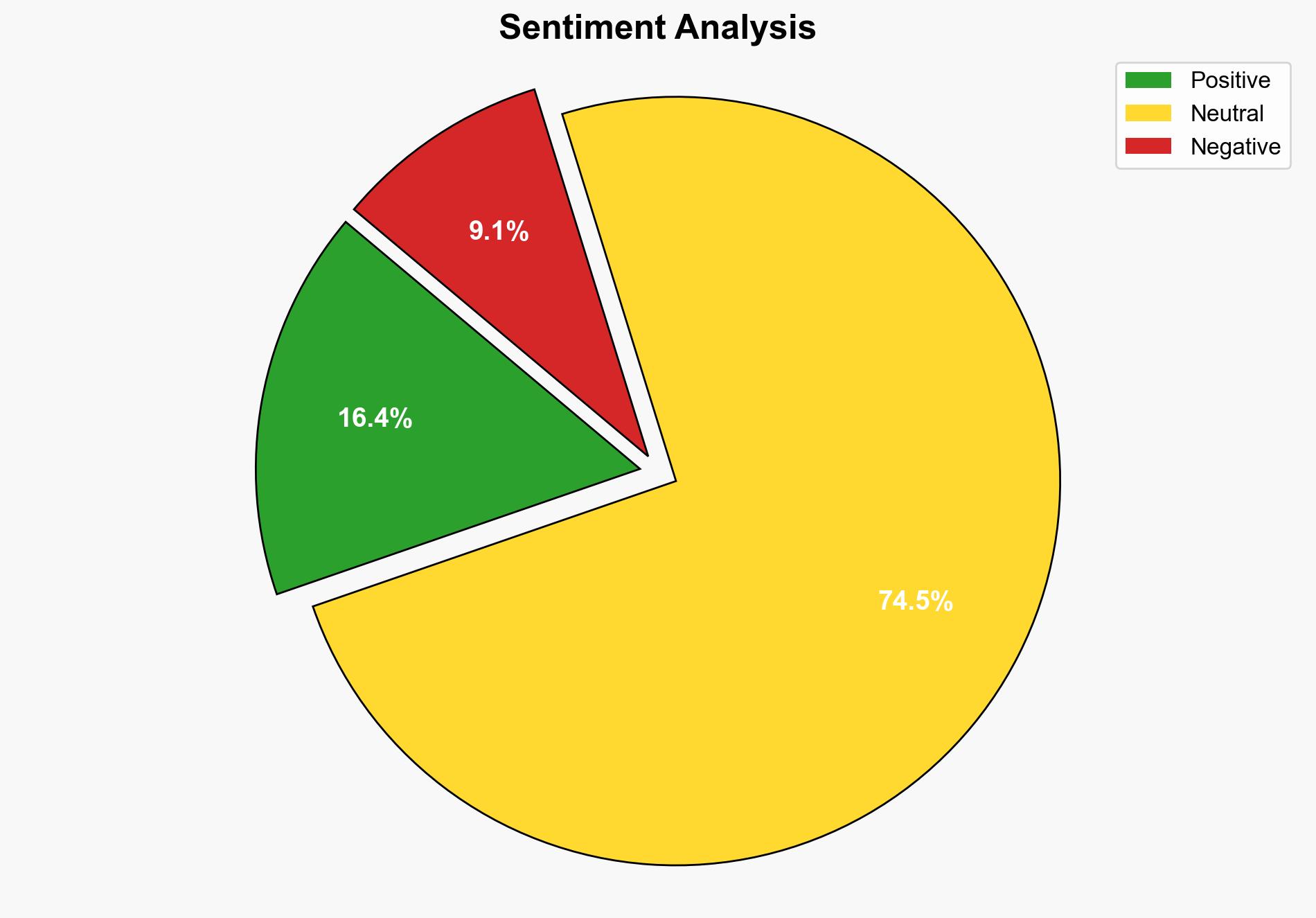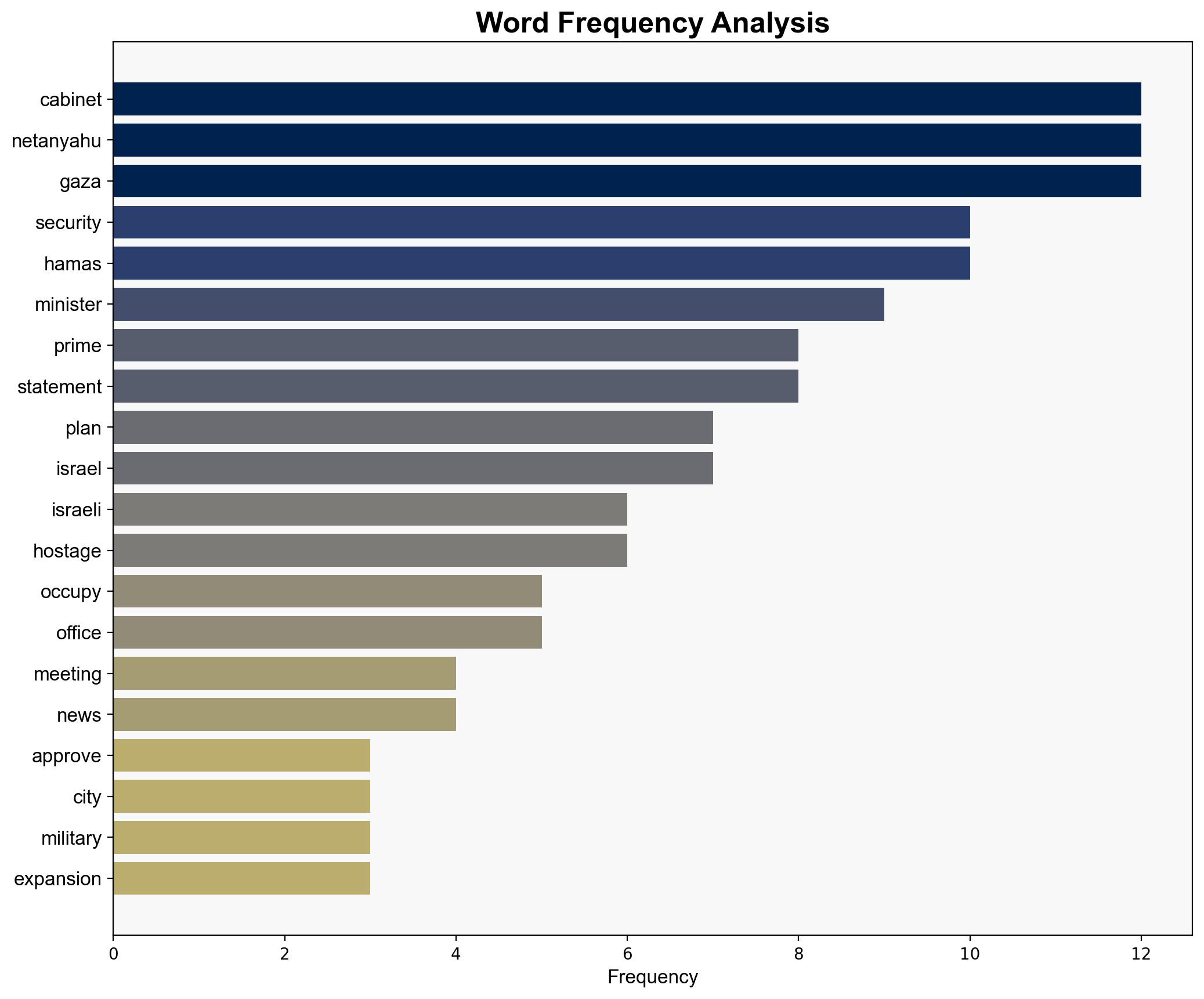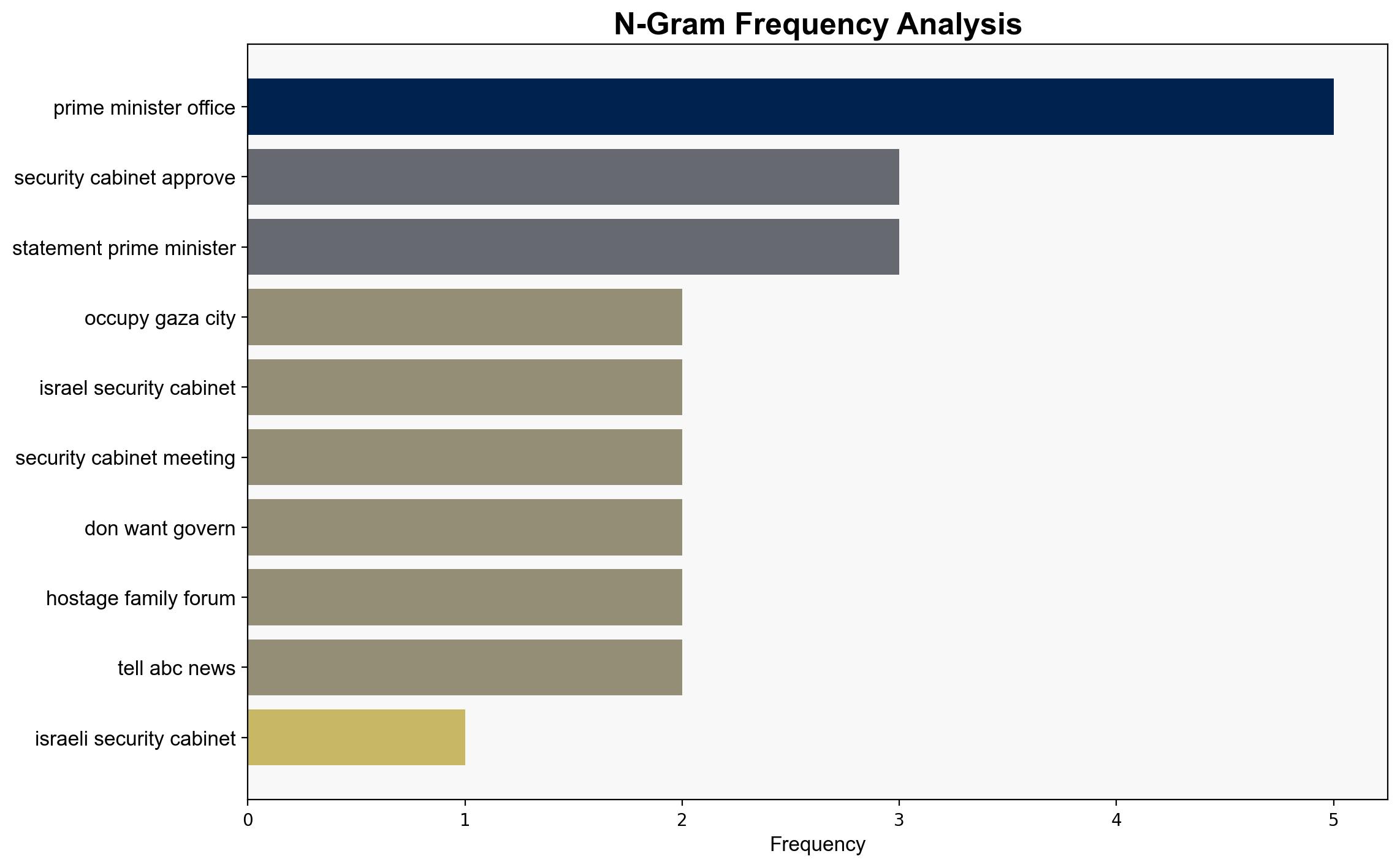Israeli security cabinet approves Netanyahu’s plan to occupy Gaza City – ABC News
Published on: 2025-08-08
Intelligence Report: Israeli security cabinet approves Netanyahu’s plan to occupy Gaza City – ABC News
1. BLUF (Bottom Line Up Front)
The Israeli security cabinet’s approval of Netanyahu’s plan to occupy Gaza City is a significant escalation in the Israeli-Palestinian conflict. The most supported hypothesis is that Israel aims to dismantle Hamas’s military capabilities and establish a new governance structure in Gaza, potentially involving the Palestinian Authority. Confidence in this hypothesis is moderate due to conflicting statements and international pressures. Recommended action includes diplomatic engagement to de-escalate tensions and humanitarian support to mitigate civilian impact.
2. Competing Hypotheses
1. **Hypothesis A**: Israel’s primary objective is to dismantle Hamas’s military infrastructure and establish a stable governance structure in Gaza, possibly involving the Palestinian Authority. This is supported by statements about disarming Hamas and establishing an alternative civil administration.
2. **Hypothesis B**: The occupation is primarily a strategic maneuver to pressure Hamas into a more favorable negotiation position, using military escalation as leverage. This is indicated by Netanyahu’s comments on not wanting to govern Gaza and the timing of the decision amidst stalled negotiations.
Using ACH 2.0, Hypothesis A is better supported by the explicit goals stated in the cabinet’s decision and the preparation of the IDF for a long-term presence. However, Hypothesis B cannot be dismissed due to the strategic ambiguity and potential for negotiation leverage.
3. Key Assumptions and Red Flags
– **Assumptions**: It is assumed that Israel has the capability and international support to sustain a prolonged military operation in Gaza. It is also assumed that the Palestinian Authority is willing and able to govern Gaza post-Hamas.
– **Red Flags**: Netanyahu’s conflicting statements about governance raise questions about the true intent. The lack of clear international support and the potential for humanitarian crises are significant concerns.
– **Blind Spots**: The potential for regional actors to intervene or escalate the situation is not fully addressed.
4. Implications and Strategic Risks
The occupation could lead to significant regional instability, with potential for increased violence and humanitarian crises. Economic impacts include potential sanctions or reduced international aid. Cyber threats may increase as Hamas and other groups retaliate. Geopolitically, this could strain Israel’s relations with allies and neighboring countries. Psychologically, the occupation could further entrench animosities and hinder long-term peace efforts.
5. Recommendations and Outlook
- Engage in diplomatic efforts to mediate between Israel and Hamas, with a focus on humanitarian ceasefires.
- Prepare for increased humanitarian aid to Gaza to mitigate civilian suffering.
- Monitor regional actors for signs of intervention or escalation.
- Scenario Projections:
- Best: Successful disarmament of Hamas and establishment of stable governance in Gaza.
- Worst: Prolonged conflict leading to regional war and humanitarian catastrophe.
- Most Likely: Continued military engagement with intermittent ceasefires and negotiations.
6. Key Individuals and Entities
– Benjamin Netanyahu
– Hamas
– Palestinian Authority
– Donald Trump (mentioned in context of past discussions)
7. Thematic Tags
national security threats, counter-terrorism, regional focus, humanitarian crisis





